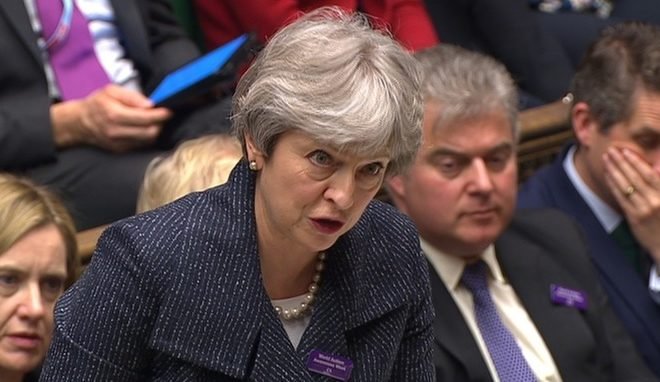Weight Loss Diet for Dinner: A Guide to Healthier Evening Meals

Dinner plays a critical role in a successful weight loss journey. It’s often the last meal of the day and can significantly impact your overnight metabolism and overall caloric intake. In this article, we explore the history of weight management through diet, provide practical tips, and highlight strategies to craft the perfect “weight loss diet for dinner.”
Today, modern science emphasizes balanced and nutrient-dense meals, especially for dinner, to support effective weight loss.
Why Dinner Matters for Weight Loss
1. Prevents Overeating
- A well-planned dinner reduces the likelihood of late-night snacking.
- Balanced meals promote satiety and prevent cravings.
2. Supports Metabolism
- Eating lighter, nutrient-dense foods helps maintain optimal metabolism overnight.
3. Regulates Hormones
- Proper dinner choices can stabilize insulin and hunger hormones like ghrelin and leptin.
Key Components of a Weight Loss Diet for Dinner
1. Lean Proteins
- Boosts satiety and muscle repair.
- Examples: Grilled chicken, tofu, fish, eggs, or legumes.
2. Fiber-Rich Vegetables
- Adds volume to meals without excess calories.
- Examples: Broccoli, spinach, zucchini, or cauliflower.
3. Healthy Fats
- Supports brain function and hormone regulation.
- Examples: Avocado, olive oil, nuts, and seeds.
4. Controlled Carbohydrates
- Provides energy without spiking blood sugar.
- Examples: Quinoa, sweet potatoes, or whole grains.
Top Weight Loss Diet for Dinner Ideas
1. Grilled Salmon with Steamed Vegetables
- High in omega-3 fatty acids.
- Packed with protein and fibre.
2. Vegetable Stir-Fry with Tofu
- Light and nutrient-dense.
- Uses minimal oil and plenty of colourful veggies.
3. Quinoa Salad with Chickpeas and Spinach
- Rich in plant-based protein and complex carbs.
- Quick and easy to prepare.
4. Baked Chicken Breast with Sweet Potato
- A balanced combination of lean protein and slow-digesting carbs.
- Perfect for post-workout dinners.
5. Egg and Avocado Wrap
- Low-carb option for those avoiding grains.
- Loaded with healthy fats and proteins.
Tips for Crafting a Weight Loss Diet for Dinner
1. Keep Portions Moderate
- Use smaller plates to control serving sizes.
- Fill half your plate with vegetables.
2. Avoid Heavy Sauces and Dressings
- Opt for simple seasoning or vinaigrettes.
- Limit creamy or sugary condiments.
3. Prioritize Home-Cooked Meals
- Cooking at home allows you to control ingredients and portion sizes.
- Experiment with herbs and spices for flavour without added calories.
4. Eat Early
- Aim to finish dinner 2-3 hours before bedtime.
- Supports digestion and prevents late-night hunger.
Common Mistakes to Avoid
1. Skipping Dinner
- This can lead to binge eating later in the evening.
- Slows metabolism and disrupts energy levels.
2. Overloading on Carbs
- Avoid large portions of pasta, rice, or bread.
- Focus on complex carbs paired with proteins and fats.
3. Ignoring Hidden Calories
- Be mindful of oils, dressings, and toppings.
- Measure portions to avoid excess.
Scientific Evidence Supporting Weight Loss Dinner Strategies
- A study published in Obesity (2013) found that eating a larger breakfast and a smaller dinner leads to greater weight loss.
- Fiber-rich dinners help control hunger hormones and reduce overall caloric intake, according to research from The American Journal of Clinical Nutrition.
- Protein-rich dinners preserve muscle mass during weight loss, as highlighted by a 2015 study in The Journal of Nutrition.
Meal Prep Ideas for Weight Loss Diet for Dinner
1. Pre-Cut Vegetables
- Save time by chopping veggies in advance.
- Store in airtight containers for easy use.
2. Batch-Cooked Proteins
- Grill or bake chicken, fish, or tofu for multiple meals.
- Freeze portions to maintain freshness.
3. Ready-to-Assemble Salads
- Keep greens, beans, and dressings prepped for quick salads.
4. Homemade Soups and Stews
- Prepare low-sodium, veggie-packed soups that can be reheated easily.
Incorporating a Weight Loss Diet for Dinner into Daily Life
1. Plan Ahead
- Create a weekly menu to avoid last-minute unhealthy choices.
- Shop for ingredients with specific meals in mind.
2. Stay Consistent
- Stick to your plan even on busy nights.
- Keep healthy frozen meals or quick recipes on hand.
3. Listen to Your Body
- Adjust portions based on hunger levels and activity.
- Avoid eating out of boredom or stress.
Benefits of Following a Weight Loss Diet for Dinner
- Improved Metabolism: Balanced meals support nighttime metabolic processes.
- Better Sleep: Avoiding heavy or high-sugar foods promotes restful sleep.
- Sustained Weight Loss: Consistency with dinner choices aids long-term success.
A well-planned dinner is a cornerstone of any effective weight loss strategy. By focusing on lean proteins, fiber-rich vegetables, and healthy fats, you can create satisfying meals that support your goals. The historical insights, scientific evidence, and practical tips outlined here ensure that your “weight loss diet for dinner” is both effective and enjoyable.
Start small, stay consistent, and watch as these dietary changes transform your health and well-being.
















